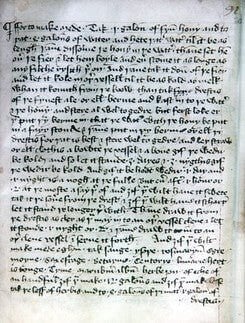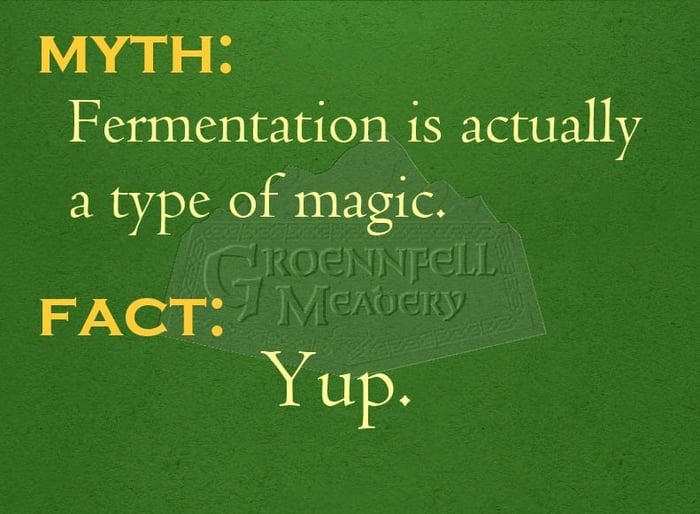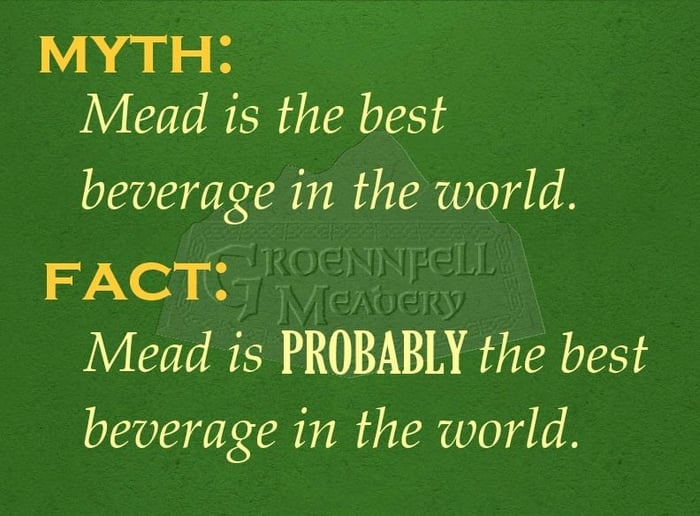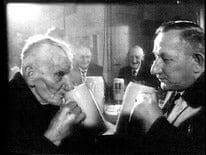 Tractatus Manuscript: Folio 20r
Tractatus Manuscript: Folio 20r
And Dogfish Head is not alone. Brewers and vintners, professional and amateur alike, have a growing interest in ancient recipes and techniques. It’s notable, for example, that Stephen Buhner’s book The Secrets of Ancient Fermentation is in Amazon.com’s top 50 bestselling beer books. And, of course, the internet verily burgeons with recipes.
Whether you like the product or not, it’s neat to drink something that has a description like this: “Molecular archaeologist Dr. Patrick McGovern of the U Penn Museum of Archaeology and Anthropology calls on Dogfish Head to re-create another ancient beverage, and Chateau Jiahu is born.”[1]
But here’s the problem for mead makers, the oldest recipe for mead in the English language comes from Tractatus de Magnetate et Operationibus eius in the 13th century, and reads as follows (note þ = th):
//ffor to make mede. Tak .i. galoun of fyne hony and to þat .4. galouns of water and hete þat water til it be as lengh þanne dissolue þe hony in þe water. thanne set hem ouer þe fier & let hem boyle and ever scomme it as longe as any filthe rysith þer on. and þanne tak it doun of þe fier and let it kole in oþer vesselle til it be as kold as melk whan it komith from þe koow. than tak drestis of þe fynest ale or elles berme and kast in to þe water & þe hony. and stere al wel to gedre
Mix a sextarius of old water with a pound of honey. Nevertheless some, when they have a mind to make the mead of a rougher taste, mingle a sextarius of water with three quarters of a pound of honey; and after they have, according to this proportion, filled a stone bottle, and plastered it, they suffer it to be forty days in the Sun.
Nevertheless, brewers don’t get to have all the fun. Next week, we will introduce you to the Marvelous Mixed-Up World of Metheglins, and our dearest friend, Sir Kenelm Digby. Be Excited.




